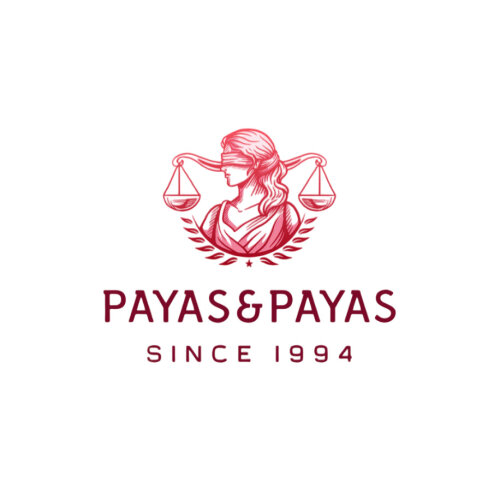Best Bankruptcy & Debt Lawyers in Turkey
Share your needs with us, get contacted by law firms.
Free. Takes 2 min.
Or refine your search by selecting a city:
List of the best lawyers in Turkey
Turkey Bankruptcy & Debt Legal Articles
Browse our 1 legal article about Bankruptcy & Debt in Turkey written by expert lawyers.
- Navigating Corporate Debt in Turkey: A Guide for Businesses
- In today's challenging economic climate, many businesses in Turkey find themselves struggling with commercial debt. Whether your company is dealing with business loans, trade liabilities, or other financial obligations, understanding the available debt relief options is crucial for regaining financial stability and ensuring operational viability. This guide explores the various... Read more →
About Bankruptcy & Debt Law in Turkey
In Turkey, bankruptcy and debt law is a critical aspect of commercial and financial regulation. It primarily revolves around the enforcement of claims and settlement of debts, both for businesses and individuals. The legal framework is designed to facilitate orderly debt restructuring, insolvency resolution, and liquidation processes. This is underpinned by the Turkish Execution and Bankruptcy Law (EBL), which lays out the procedures and rights for creditors and debtors, ensuring that insolvency issues are handled equitably and transparently.
Why You May Need a Lawyer
Legal assistance can be crucial in the realm of bankruptcy and debt due to the complex nature of the laws and potential high stakes involved. Individuals and businesses may require legal help for a variety of reasons, including:
- Facing creditors' claims or litigation.
- Assistance in filing for bankruptcy to manage unpayable debts.
- Guidance in debt restructuring to negotiate new payment terms with creditors.
- Advice on the implications of insolvency on personal or business assets.
- Representation in court or during creditor meetings.
- Understanding and navigating the nuances of Turkish and international debt law.
Local Laws Overview
The key legal framework governing bankruptcy and debt in Turkey is the Execution and Bankruptcy Law (EBL). Key provisions include:
- Types of Bankruptcy: Ordinary bankruptcy, concordat (a form of restructuring), and special administration for companies are main types recognized.
- Enforcement Proceedings: The creation of enforcement files, asset seizure, and forced sale of assets are governed under specific rules.
- Insolvency Proceedings: Defines how companies and individuals should proceed when unable to meet debt obligations.
- Automatic Stay: Upon filing for bankruptcy, an automatic stay on debt collection processes is usually imposed to protect debtors from creditors.
- Debt Restructuring: Out-of-court restructuring agreements and court-approved concordats provide a framework for negotiation.
Frequently Asked Questions
1. What is the first step if I cannot pay my debts?
The initial step should be to consult with a legal advisor to evaluate the financial situation and consider possible solutions such as restructuring plans, negotiations, or initiating formal insolvency proceedings.
2. Can I keep any assets if I file for bankruptcy?
Certain essential assets may be exempt from liquidation, but specific rules depend on the debtor's status and the type of bankruptcy filed.
3. What is a concordat?
A concordat is a court-approved arrangement where a debtor restructures debts with creditors to avoid bankruptcy, often involving reduced payments or extended deadlines.
4. How long does the bankruptcy process take in Turkey?
The duration varies, depending on the complexity of the case and the type of bankruptcy but typically involves several months to several years for resolution.
5. Can a creditor seize my salary or pension?
Generally, a portion of your salary or pension may be garnished to repay debts unless protected under specific exemptions provided by law.
6. Is it mandatory to hire a lawyer for bankruptcy or debt issues?
While not mandatory, having a lawyer is highly advisable due to legal complexities and to ensure your interests are protected.
7. What are the consequences of bankruptcy on future credit?
Bankruptcy may significantly impact credit ratings and future borrowing abilities, and details vary according to individual circumstances and market conditions.
8. What is the difference between bankruptcy and insolvency?
Insolvency is the inability to pay debts as they come due, while bankruptcy is a legal status declared by a court that follows insolvency.
9. Can foreign creditors enforce debts in Turkey?
Yes, but they must comply with Turkish laws and obtain local legal representation to pursue claims through the Turkish court system.
10. Are there alternatives to filing for bankruptcy?
Yes, alternatives include debt restructuring, negotiation for settlement outside of court, or utilizing a concordat to manage debts under approved terms.
Additional Resources
Several resources can assist individuals and businesses dealing with bankruptcy and debt:
- Turkish Ministry of Justice: Offers information and guidance on legal procedures.
- Union of Chambers and Commodity Exchanges of Turkey (TOBB): Provides support for businesses encountering financial distress.
- Local Bar Associations: Can refer individuals to qualified attorneys specializing in insolvency and debt law.
- Non-Governmental Organizations: There are NGO initiatives that offer advice and educational resources for financial literacy and debt management.
Next Steps
If you're facing bankruptcy or debt issues in Turkey, consider the following steps:
- Gather all financial records to clearly understand your financial situation.
- Consult with a specialized attorney for guidance specific to your circumstances.
- Consider mediation or negotiation with creditors as a first step to potentially avoid lengthy legal processes.
- Explore restructuring options and other non-bankruptcy solutions.
- Stay informed of your rights and obligations under Turkish bankruptcy and debt laws.
- Prepare for potential court appearances or meetings with creditors as necessary.
Lawzana helps you find the best lawyers and law firms in Turkey through a curated and pre-screened list of qualified legal professionals. Our platform offers rankings and detailed profiles of attorneys and law firms, allowing you to compare based on practice areas, including Bankruptcy & Debt, experience, and client feedback.
Each profile includes a description of the firm's areas of practice, client reviews, team members and partners, year of establishment, spoken languages, office locations, contact information, social media presence, and any published articles or resources. Most firms on our platform speak English and are experienced in both local and international legal matters.
Get a quote from top-rated law firms in Turkey — quickly, securely, and without unnecessary hassle.
Disclaimer:
The information provided on this page is for general informational purposes only and does not constitute legal advice. While we strive to ensure the accuracy and relevance of the content, legal information may change over time, and interpretations of the law can vary. You should always consult with a qualified legal professional for advice specific to your situation.
We disclaim all liability for actions taken or not taken based on the content of this page. If you believe any information is incorrect or outdated, please contact us, and we will review and update it where appropriate.
Browse bankruptcy & debt law firms by service in Turkey
Turkey Attorneys in related practice areas.
Browse bankruptcy & debt law firms by city in Turkey
Refine your search by selecting a city.

















